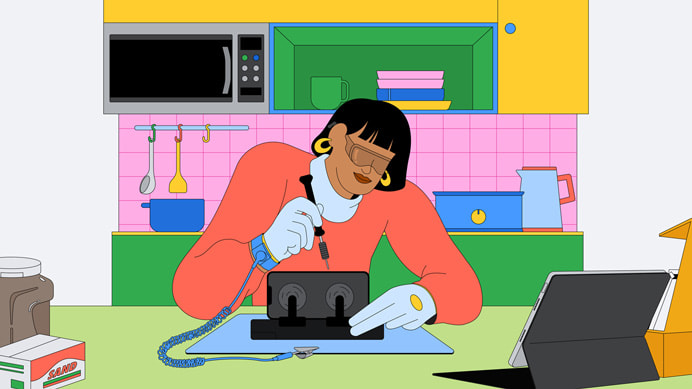Apple Self Service Repair unveiled — here’s how you can fix your iPhone yourself
If you’ve ever wanted to fix your own iPhone, Apple’s now giving you the chance to do so with official parts and tools.
Apple has just announced a new Apple Self Service Repair program, making the unprecedented move of giving users the opportunity to fix their own phones, and providing the tools and parts for them to do it — for a price of course.
It’s initially going to be available next year in the U.S. for iPhone 12 and iPhone 13 displays, batteries, cameras and more. While only commonly replaced parts will initially be available, more options will open up through the year.
The program will also expand throughout 2022 to include repairs for M1 Macs (which would include the MacBook Pro, MacBook Air and iMac) and to become available in more countries.

The way it works is that users will first need to read Apple’s official repair guide for the product they want to fix. They’ll then buy the parts and tools they need from the Apple Self Service Repair Online Store, and return the swapped-out components for recycling, which gives the user credit towards the parts they bought.
Apple (and us, for that matter) still recommend most people take their phones to an Apple store or authorized technician to get their phone serviced, since repairing phones can be a delicate procedure. However, people who are comfortable with dealing with electronics and want their phone to last as long as possible now have a repair option they didn’t have before, and all with Apple’s backing.
That said, Apple is still a long way from being considered a “right to repair” advocate. Remember that until recently, replacing the iPhone 13’s display would disable Face ID. Even if Apple no longer minds users trying to repair devices themselves, it’s still making sure you buy Apple’s own parts to do it, rather than using more readily available (and likely cheaper) equivalent components.
Overall, this is a welcome move from Apple, even if it will only be an offer taken up by a minority of iPhone users. Hopefully this will lead to users being able to keep their iPhones going for much longer, aided by Apple’s still generously long backward compatibility for iOS.
For all the latest Technology News Click Here
For the latest news and updates, follow us on Google News.
